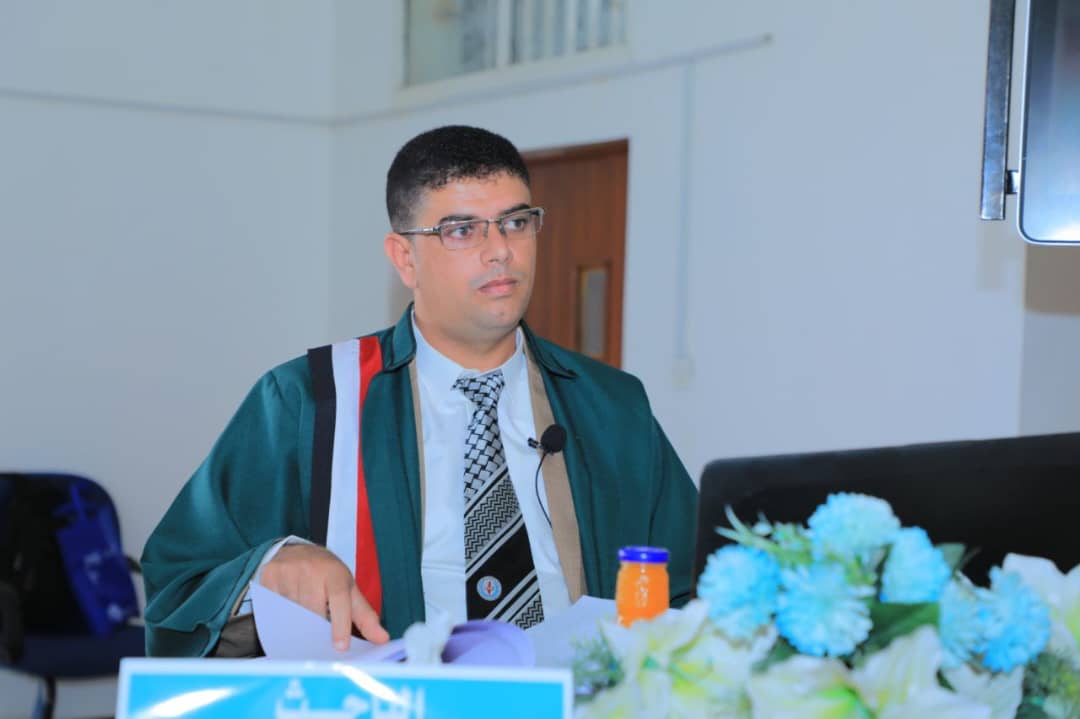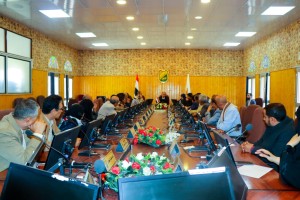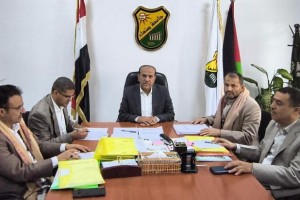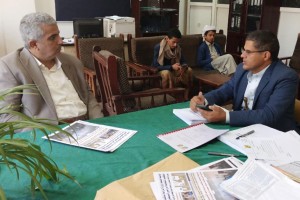Master’s Degree Awarded to Mr. Jamal Mohammed Al-Ward in Political Sciences
- Categories Letters and Promotions - Graduate Studies, news, Regulations - Postgraduate Studies
- Date May 31, 2025

Mr. Jamal Mohammed Salah Al-Ward was awarded a Master’s degree, majoring in International Relations, with an average of (Excellent) and a grade of (92%) for his thesis titled “The Policies of the Gulf Cooperation Council (GCC) States Towards the Palestinian Cause (Saudi Arabia, Kuwait, UAE),” which was submitted to the Department of Political Science, Faculty of Commerce and Economics – Sana’a University. The MA defense was held on Dhu al-Qa’dah 28, 1446 Hijri, corresponding to May 26, 2025.
The MA Viva-voce Committee, which was formed based on a resolution issued by the Post-Graduate Studies and Scientific Research Council, consisted of the following:
| # | Committee Members | Designation | University | Position |
| 1 | Assoc. Prof. Khadijah Al-Haisami | Internal examiner | Sana’a University | Chair |
| 2 | Assoc. Prof. Nabeel Ali Al-Sharjabi | External Examiner | Hodeidah University | Member |
| 3 | Assoc. Prof. Mansour Aziz Al-Zandani | Main supervisor | Sana’a University | Member |
The thesis aimed to dissect the various attitudes and policies adopted by GCC states (Saudi Arabia, Kuwait, and the United Arab Emirates) concerning the Palestinian cause, offering a comparative analysis of their formal diplomatic behavior versus practical actions.
The thesis revealed several significant findings, including:
- A prevalent duality was observed in Gulf policies towards the Palestinian issue, where narrow national interests often overshadowed official supportive rhetoric, leading to a diminished Gulf role in supporting the cause.
- While Saudi Arabia outwardly committed to the Arab Peace Initiative and rejected normalization, it has shown gradual openness towards Israel, balancing support for the Palestinian cause with its strategic interests.
- Kuwait maintained a firm stance against normalization, supported by strong public and parliamentary consensus.
- The UAE adopted an explicit policy of openness towards the Israeli entity for economic and security objectives.
- Gulf normalization efforts did not yield tangible benefits for the Palestinian cause; instead, they contributed to weakening the unified Arab position and reducing Palestinian factions’ maneuvering capacity.
- Normalization was identified as a threat to Arab national security, facilitating penetration of Gulf societies and reshaping the consciousness of new generations.
The thesis concluded with several recommendations, the most prominent of which include:
- Unifying the Gulf stance on the Palestinian cause and linking it to collective strategic interests.
- Rejecting official normalization agreements before ending the occupation and establishing an independent Palestinian state.
- Urging Saudi Arabia to reclaim its historical leadership role in defending Palestinian rights.
- Encouraging the UAE to reassess its choices, given the failure of normalization to protect Palestinian rights.
- Appreciating Kuwait’s position and working to strengthen it within the Gulf and Arab frameworks.
- Enhancing Arab military and political cooperation to support Palestinian resistance and confront challenges.
- Activating Gulf and Arab diplomacy in international forums to legally hold the occupation accountable.
- Launching media and intellectual campaigns to reinforce the centrality of the Palestinian cause in Arab consciousness, particularly among younger generations.
The thesis was examined and recommended by the Viva-Voce Committee for acceptance and approval. The defense was attended by a number of academics, researchers, students, and interested individuals, in addition to the candidate’s colleagues and family members.
Discover more from Sana'a University
Subscribe to get the latest posts sent to your email.






